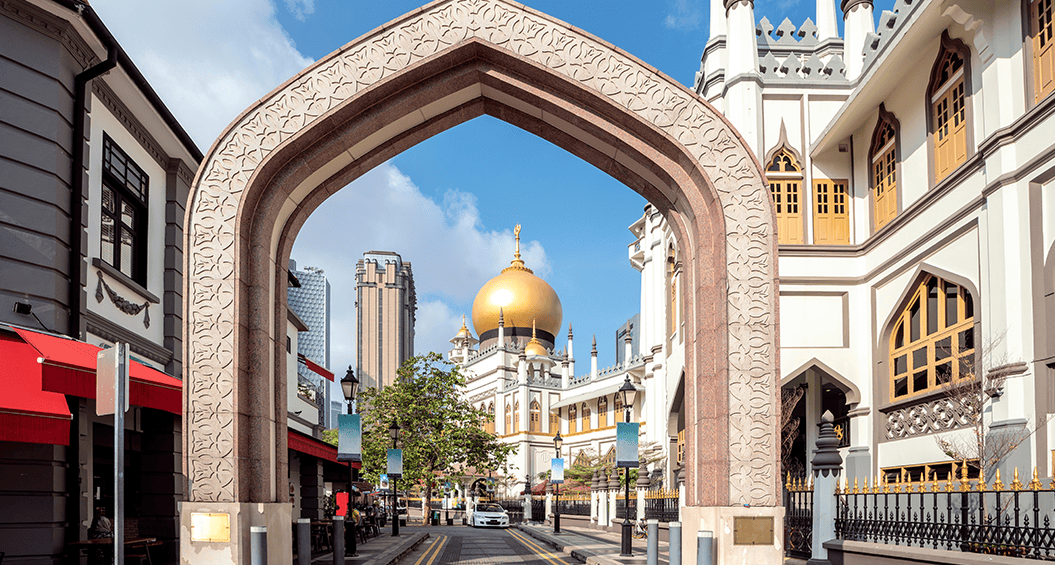Singapore
Singapore culture overview1,2
- Capital: Singapore
- Population: approx. 6 million
- Official Language: Mandarin Chinese; Malay; Tamil; English
- Currency: Singapore dollar (S$)
- Singapore means “Lion City”
- Singapore is the only island city-state in the world.
- Known as a “City in Garden,” almost 50% of Singapore is green spaces.
- Orchids are the national flower.
Tips on moving to Singapore
What Do You Need to Enter Singapore?3
- Valid Passport
- Visa
- SG Arrival Card (SGAC)
- Bearer Negotiable Instruments (CBNI)
Customs and Declarations3,4
All passengers entering Singapore are required to declare their belongings. Passengers carrying cash or other means of payment exceeding S$20,000 are required to declare to Customs.
Prohibited items:
- Explosives, fireworks, munitions, flares, Christmas crackers, sparklers, party poppers and pyrotechnics
- Security-type cases/boxes incorporating goods such as lithium batteries or pyrotechnics
- Compressed gases (flammable, non-flammable, or poisonous) such as butane, propane, aqualung cylinders, lighter fuels, or refills
- Lighters, including cigar lighters, blue-flame lighters, battery-powered (e.g. powered by lithium battery) lighters, novelty lighters, as well as strike-anywhere matches. Subject to local regulations, one box of safety matches or one small cigarette lighter that does not contain unabsorbed liquid fuel, other than liquefied gas, intended for the use by an individual, may be allowed per person and only when carried on the person. They are, however, not permitted in checked or carry-on baggage.
- Oxidizing substances such as bleaching powder and peroxides
- Flammable liquids such as paints and adhesives
- Flammable solids that are easily ignited
- Disabling devices such as mace or pepper sprays, with irritant properties
- Poisons such as arsenic, cyanides, or insecticides
- Radioactive materials
- Corrosive materials such as mercury (which may be contained in thermometers or blood pressure gauges), acids, alkalis, and wet cell batteries
- Meals-Ready-to-Eat (MREs)
- Firearms / parts of firearm such as revolvers, rifles, imitation firearms, pellet guns, ball-bearing guns, barrels, trigger assembly, etc
- Ammunition including blank, spent/empty cartridges
- Toy guns (replicas and imitation firearms that may be mistaken for real weapons)
- Any other substances which, during a flight, present a danger not covered above, such as magnetized, offensive, or irritating materials
Helpful numbers in case of emergencies in Singapore5
There are several important emergency numbers to know in case you ever experience an emergency or need emergency help:
- Police (999)
- Ambulance or Fire (995)
- Non-emergency (177)
Passing Away in Singapore6, 7
If the death occurs in the hospital, the doctor will certify the death online and submit the information to the Immigration & Checkpoints Authority (ICA). The doctor will provide you with a printout which contains the death document and deceased’s ID numbers, and date of death. Once the death is certified, you can download the digital death certificate.
The death should also be reported to the relevant embassy or consulate.
The following information is required when reporting a death:
- The deceased's full name, date and place of birth, address
- Required documentation- the deceased’s passport, residence card, death certificate
- The date and place of death
- The cause of death
Repatriating Mortal Remains
The repatriation of a body to the home country requires the help of the relevant local embassy or consulate. Consular officials can assist in organizing repatriation and obtaining appropriate documentation.
When repatriation of the body is requested, funeral homes or crematoriums in Singapore will temporarily hold the remains while arrangements are made.
Repatriation covers transportation and essential documentation, which may include:
- A certified Copy of the Notification of Death
- An embalming certificate (if required by the destination country)
- A certificate confirming the coffin complies with International Air Transport Association (IATA) regulations.

